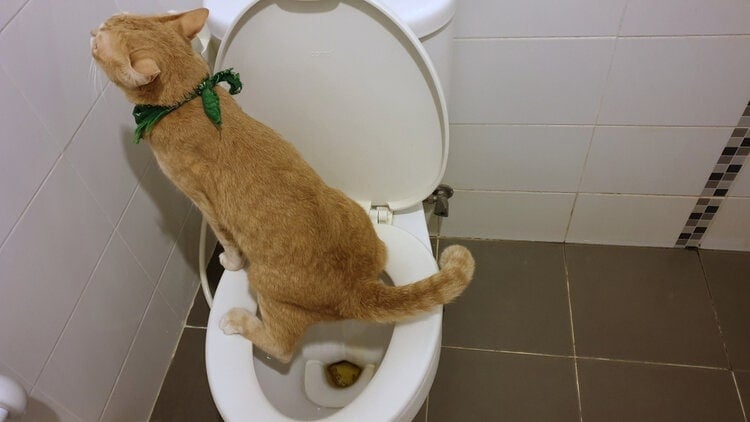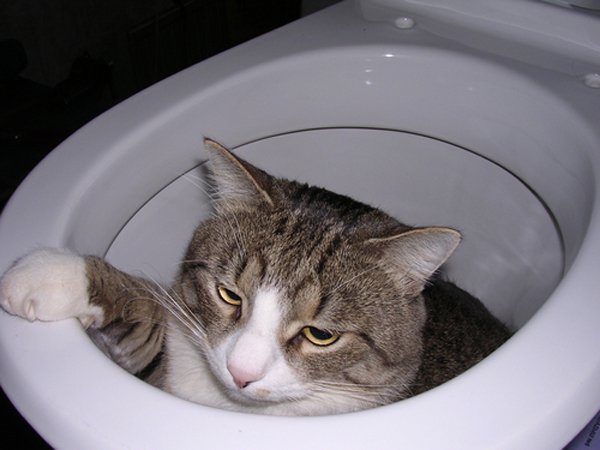Which Flushing Animal Waste Is Not Advisable
Which Flushing Animal Waste Is Not Advisable
Blog Article
In this article below you will discover additional exceptional points relating to 4 Reasons Why Dog Poop Cleanup is Important.

When it pertains to throwing away waste, specifically animal waste, many individuals frequently resort to the practical option of flushing it down the toilet. Nevertheless, this apparently simple solution can have major effects for the setting and public health. In this article, we'll explore why flushing animal waste down the bathroom is a poor idea and offer alternate techniques for appropriate disposal.
Introduction
Proper waste disposal is important for preserving environmental sustainability and public health. While it might seem harmless to purge animal waste down the commode, it can cause different issues, both for the setting and human wellness.
Risks of flushing pet waste
Ecological impact
Flushing pet waste introduces hazardous microorganisms and microorganisms right into waterways, which can adversely affect marine ecological communities. These virus can pollute water resources and harm aquatic life, disrupting fragile ecological communities.
Public health concerns
Animal waste includes damaging germs such as E. coli and Salmonella, which can present significant health threats to human beings. Purging pet waste down the bathroom can pollute water materials, resulting in the spread of diseases and infections.
Alternatives to flushing
Instead of purging pet waste down the bathroom, there are a number of alternate disposal methods that are extra eco-friendly and hygienic.
Composting
Composting animal waste is an environment-friendly way to throw away it. By composting, raw material is broken down right into nutrient-rich soil, which can be used to feed yards and plants.
Land fill disposal
Getting rid of pet waste in a land fill is an additional option. While not as eco-friendly as composting, it is a more secure option to flushing, as it prevents the contamination of water resources.
Animal waste disposal systems
There are specific pet garbage disposal systems offered that securely and hygienically take care of animal waste. These systems usually use enzymes to break down waste and get rid of smells.
Steps to proper pet garbage disposal
To ensure appropriate disposal of animal waste, adhere to these steps:
Scooping and nabbing waste
Regularly scoop and bag animal waste utilizing eco-friendly bags. This protects against waste from contaminating the environment.
Utilizing assigned waste bins
Dispose of bagged animal waste in designated waste bins, such as compost containers or land fill containers. Prevent flushing it down the bathroom whatsoever costs.
Cleaning litter boxes and animal areas consistently
Regularly clean can and pet locations to avoid the accumulation of waste and bacteria. Usage pet-safe cleaning items to preserve hygiene.
Advantages of proper disposal techniques
Adopting appropriate disposal methods for animal waste supplies a number of advantages:
Decreased environmental pollution
Correct disposal approaches decrease the threat of environmental pollution, securing rivers and communities from contamination
Lessened threat of water contamination.
By avoiding flushing animal waste down the toilet, the danger of water contamination is dramatically minimized, guarding public health.
Boosted hygiene and health
Correct disposal approaches advertise far better hygiene and health, developing a more secure setting for both people and animals.
Final thought
In conclusion, purging pet here waste down the commode is unsafe to the atmosphere and public health. By taking on alternate disposal methods and adhering to appropriate waste management techniques, we can lessen the negative influence of animal waste and contribute to a cleaner, healthier planet.
What To Do With Dog Poo – The Do's And Don'ts Of Disposing Of Faeces
Dog poo bins
Some councils provide dedicated dog waste bins in popular dog-walking areas that can take dog poo that has been bagged but you can legally dispose of dog waste in any public litter bin, as long as it is securely bagged. This also applies to your wheelie bin at home.
Do not flush
Water companies do not recommend flushing dog faeces down the toilet because certain parasites can survive the water processing treatment and are potentially harmful to humans. You should also never consider flushing dog poo that has been bagged down the toilet as the bags will not break down and instead create severe blockages in the sewage system.
In the woods
The Forestry Commission promotes a ‘stick and flick’ method for dealing with waste in the woods. This means finding a stick and using it to flick any poo from off the path so that it is out of the way of other walkers. You could also bury it as long as it is not in an area where there might be livestock.
Livestock
Parasites found in dog poo can be transmitted to livestock if they inadvertently eat infected faeces that has been left on grazing land. This could result in the death of sheep or abortion in cattle so you should always make sure you pick up your dog’s waste in fields where livestock could be present.

Regularly clean can and pet locations to avoid the accumulation of waste and bacteria. Usage pet-safe cleaning items to preserve hygiene.
Advantages of proper disposal techniques
Adopting appropriate disposal methods for animal waste supplies a number of advantages:
Decreased environmental pollution
Correct disposal approaches decrease the threat of environmental pollution, securing rivers and communities from contamination
Lessened threat of water contamination.
By avoiding flushing animal waste down the toilet, the danger of water contamination is dramatically minimized, guarding public health.
Boosted hygiene and health
Correct disposal approaches advertise far better hygiene and health, developing a more secure setting for both people and animals.
Final thought
In conclusion, purging pet here waste down the commode is unsafe to the atmosphere and public health. By taking on alternate disposal methods and adhering to appropriate waste management techniques, we can lessen the negative influence of animal waste and contribute to a cleaner, healthier planet.
What To Do With Dog Poo – The Do's And Don'ts Of Disposing Of Faeces
Dog poo bins
Some councils provide dedicated dog waste bins in popular dog-walking areas that can take dog poo that has been bagged but you can legally dispose of dog waste in any public litter bin, as long as it is securely bagged. This also applies to your wheelie bin at home.
Do not flush
Water companies do not recommend flushing dog faeces down the toilet because certain parasites can survive the water processing treatment and are potentially harmful to humans. You should also never consider flushing dog poo that has been bagged down the toilet as the bags will not break down and instead create severe blockages in the sewage system.
In the woods
The Forestry Commission promotes a ‘stick and flick’ method for dealing with waste in the woods. This means finding a stick and using it to flick any poo from off the path so that it is out of the way of other walkers. You could also bury it as long as it is not in an area where there might be livestock.
Livestock
Parasites found in dog poo can be transmitted to livestock if they inadvertently eat infected faeces that has been left on grazing land. This could result in the death of sheep or abortion in cattle so you should always make sure you pick up your dog’s waste in fields where livestock could be present.

Hopefully you enjoyed reading our excerpt about . Thank you so much for finding the time to read through our piece. Kindly take the opportunity to promote this write-up if you enjoyed reading it. I am grateful for being here. Please check our blog back soon.
Website Report this page